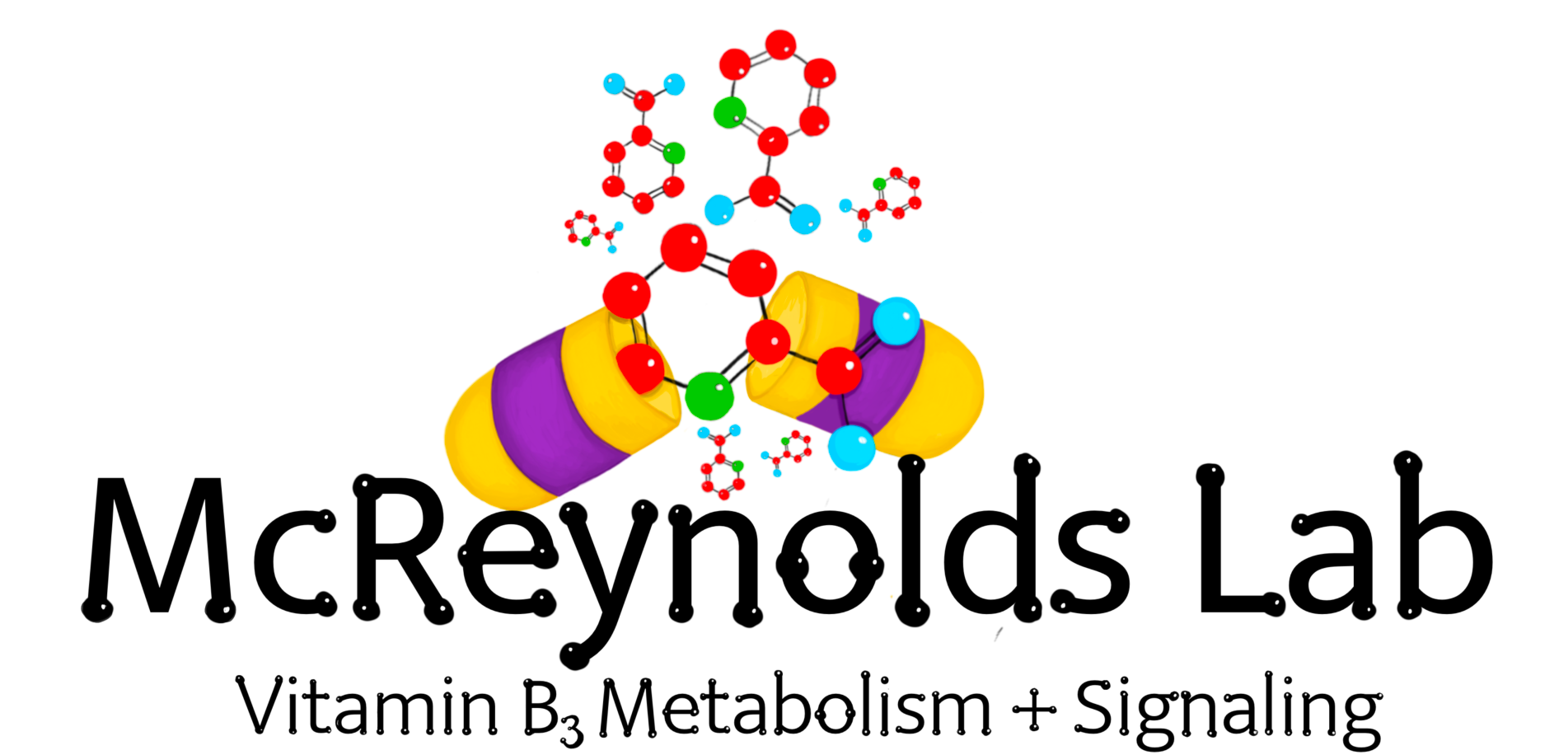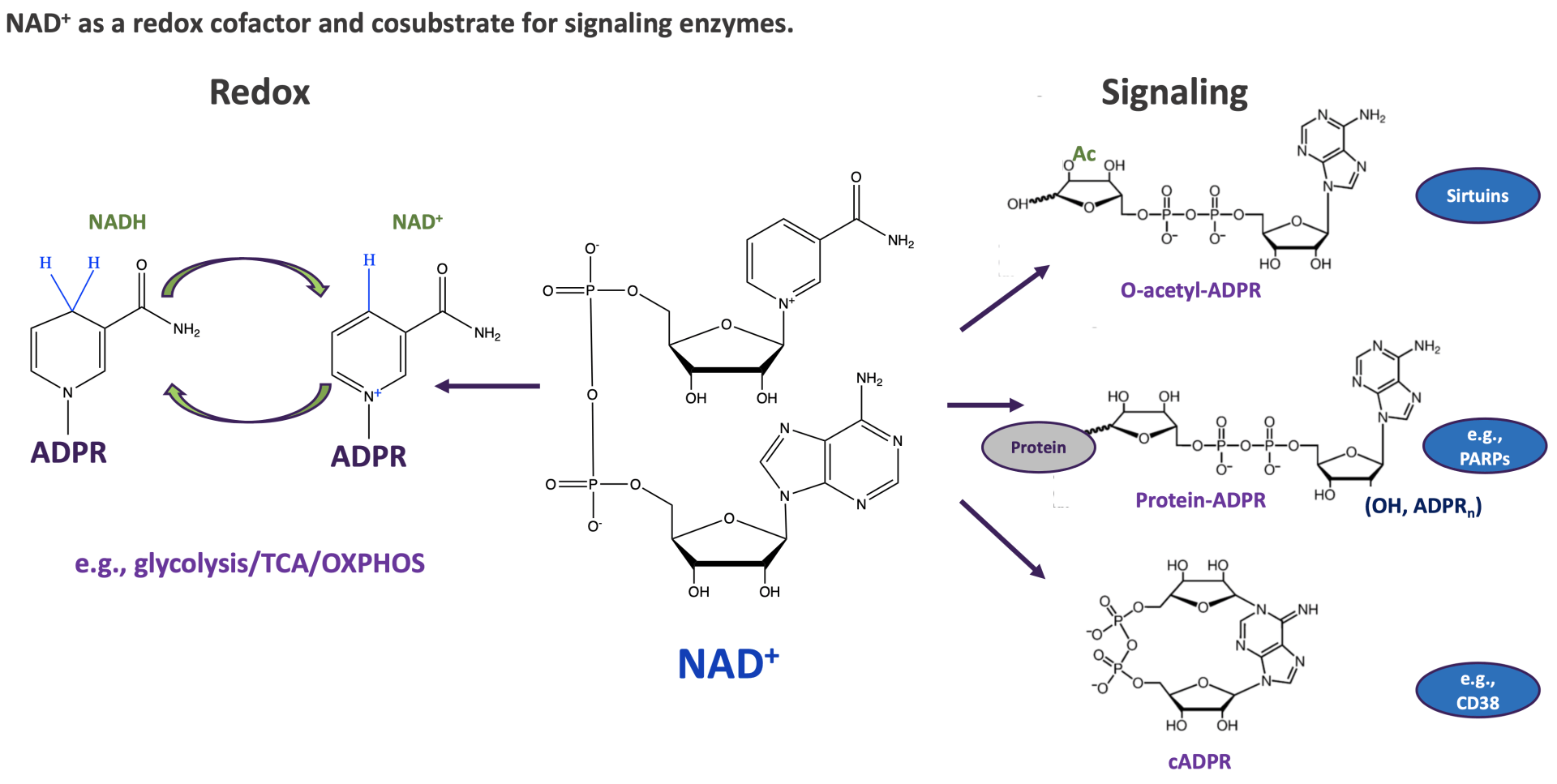Research Area 1: Elucidate how NAD+ homeostasis is achieved and fails over the lifespan
Nicotinamide adenine dinucleotide (NAD+) is an essential coenzyme in redox reactions and co-substrate for signaling enzymes fueling both bioenergetic and regulatory processes. NAD+ decreases in concentration with age in worms, flies, mice and humans. NAD+ depletion causes multiple defects including mitochondrial dysfunction, dysregulated nutrient sensing, and epigenetic alterations, which are classic hallmarks of aging. NAD+ supplementation is simple, appears to be safe, and has beneficial effects in aged mice. Thus, decreased NAD+ availability may be a contributing and modifiable factor in age-related diseases. However, there are still fundamental gaps in understanding how NAD+ homeostasis is maintained and regulated. Our work provided a framework for studying systemic changes in NAD+ metabolism with age, and raises many key questions. What are the roles of specific NAD+ consuming enzymes? The dynamics of NAD+ at the level of individual cells and organelles? Does altered NAD+ metabolism impact stress robustness?

